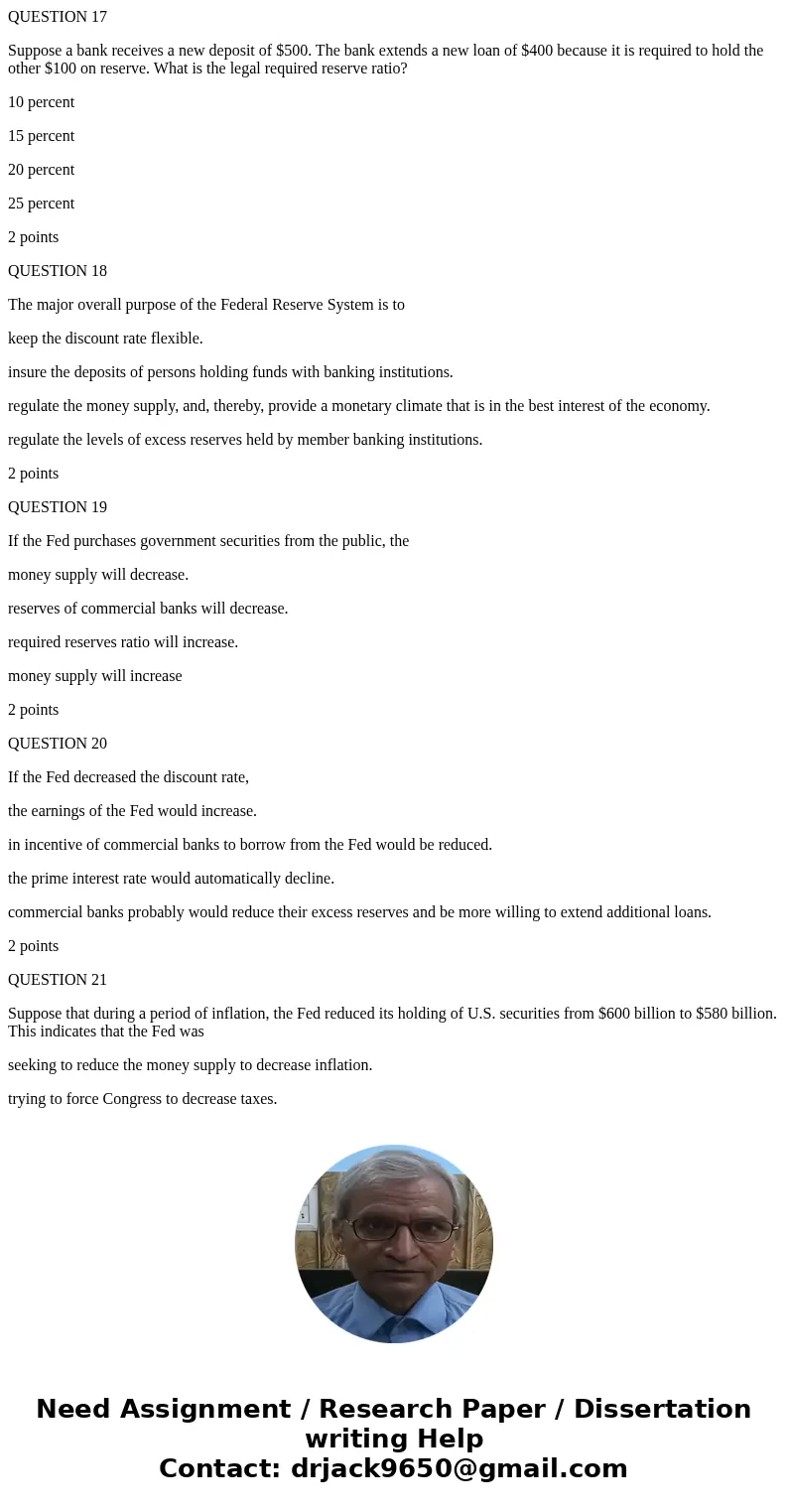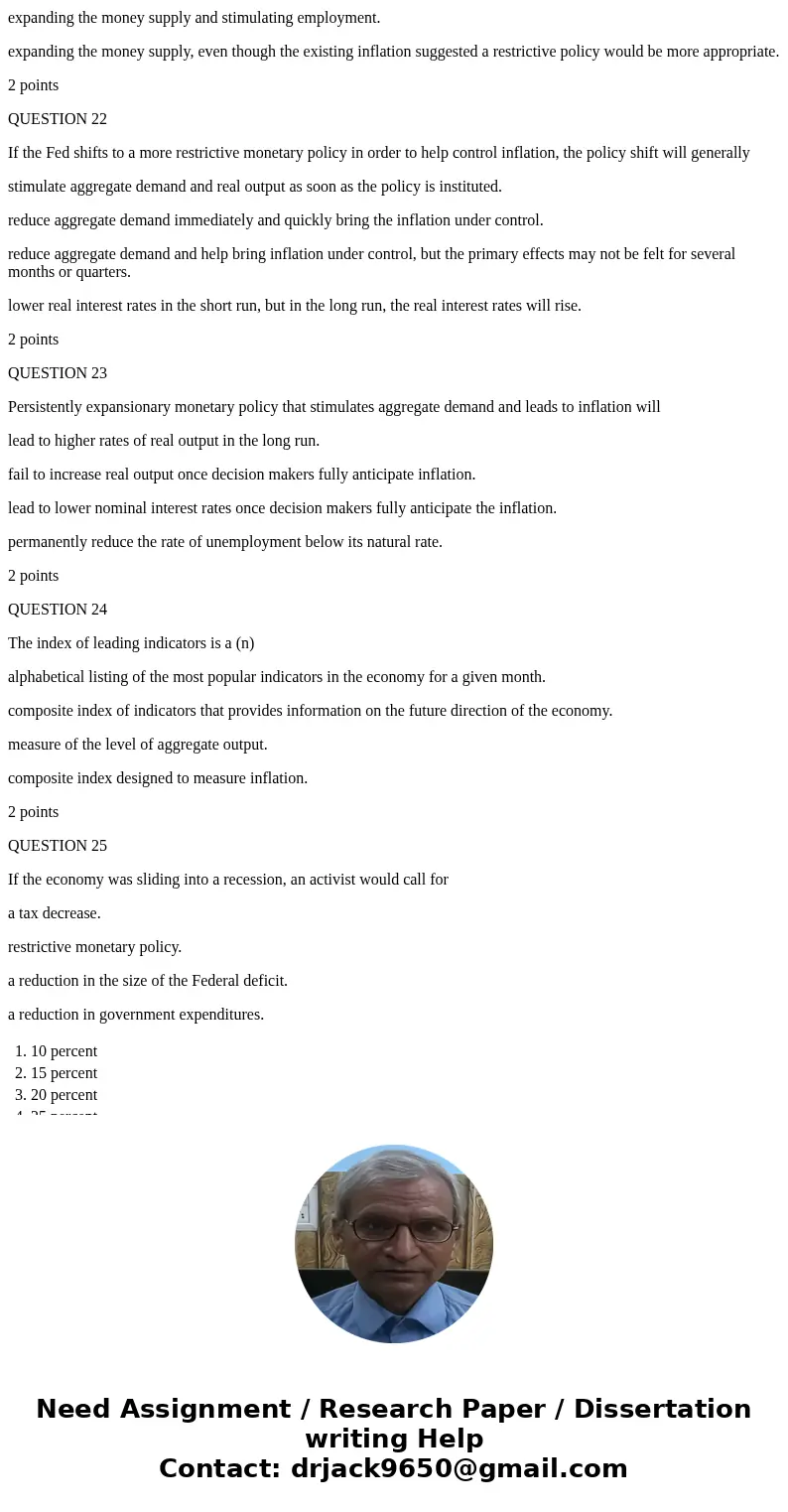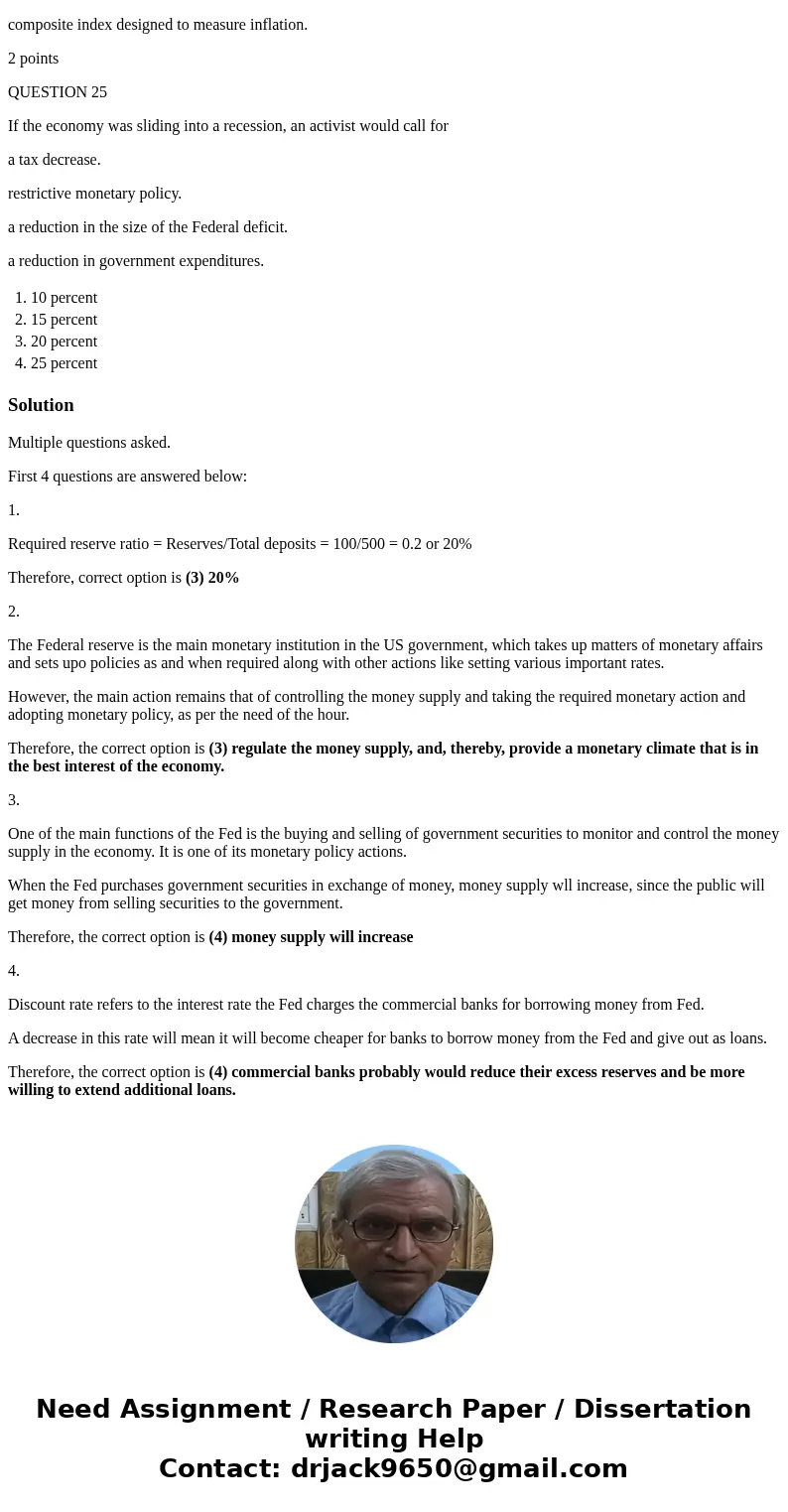QUESTION 17 Suppose a bank receives a new deposit of 500 The
QUESTION 17
Suppose a bank receives a new deposit of $500. The bank extends a new loan of $400 because it is required to hold the other $100 on reserve. What is the legal required reserve ratio?
10 percent
15 percent
20 percent
25 percent
2 points
QUESTION 18
The major overall purpose of the Federal Reserve System is to
keep the discount rate flexible.
insure the deposits of persons holding funds with banking institutions.
regulate the money supply, and, thereby, provide a monetary climate that is in the best interest of the economy.
regulate the levels of excess reserves held by member banking institutions.
2 points
QUESTION 19
If the Fed purchases government securities from the public, the
money supply will decrease.
reserves of commercial banks will decrease.
required reserves ratio will increase.
money supply will increase
2 points
QUESTION 20
If the Fed decreased the discount rate,
the earnings of the Fed would increase.
in incentive of commercial banks to borrow from the Fed would be reduced.
the prime interest rate would automatically decline.
commercial banks probably would reduce their excess reserves and be more willing to extend additional loans.
2 points
QUESTION 21
Suppose that during a period of inflation, the Fed reduced its holding of U.S. securities from $600 billion to $580 billion. This indicates that the Fed was
seeking to reduce the money supply to decrease inflation.
trying to force Congress to decrease taxes.
expanding the money supply and stimulating employment.
expanding the money supply, even though the existing inflation suggested a restrictive policy would be more appropriate.
2 points
QUESTION 22
If the Fed shifts to a more restrictive monetary policy in order to help control inflation, the policy shift will generally
stimulate aggregate demand and real output as soon as the policy is instituted.
reduce aggregate demand immediately and quickly bring the inflation under control.
reduce aggregate demand and help bring inflation under control, but the primary effects may not be felt for several months or quarters.
lower real interest rates in the short run, but in the long run, the real interest rates will rise.
2 points
QUESTION 23
Persistently expansionary monetary policy that stimulates aggregate demand and leads to inflation will
lead to higher rates of real output in the long run.
fail to increase real output once decision makers fully anticipate inflation.
lead to lower nominal interest rates once decision makers fully anticipate the inflation.
permanently reduce the rate of unemployment below its natural rate.
2 points
QUESTION 24
The index of leading indicators is a (n)
alphabetical listing of the most popular indicators in the economy for a given month.
composite index of indicators that provides information on the future direction of the economy.
measure of the level of aggregate output.
composite index designed to measure inflation.
2 points
QUESTION 25
If the economy was sliding into a recession, an activist would call for
a tax decrease.
restrictive monetary policy.
a reduction in the size of the Federal deficit.
a reduction in government expenditures.
| 1. | 10 percent | |
| 2. | 15 percent | |
| 3. | 20 percent | |
| 4. | 25 percent |
Solution
Multiple questions asked.
First 4 questions are answered below:
1.
Required reserve ratio = Reserves/Total deposits = 100/500 = 0.2 or 20%
Therefore, correct option is (3) 20%
2.
The Federal reserve is the main monetary institution in the US government, which takes up matters of monetary affairs and sets upo policies as and when required along with other actions like setting various important rates.
However, the main action remains that of controlling the money supply and taking the required monetary action and adopting monetary policy, as per the need of the hour.
Therefore, the correct option is (3) regulate the money supply, and, thereby, provide a monetary climate that is in the best interest of the economy.
3.
One of the main functions of the Fed is the buying and selling of government securities to monitor and control the money supply in the economy. It is one of its monetary policy actions.
When the Fed purchases government securities in exchange of money, money supply wll increase, since the public will get money from selling securities to the government.
Therefore, the correct option is (4) money supply will increase
4.
Discount rate refers to the interest rate the Fed charges the commercial banks for borrowing money from Fed.
A decrease in this rate will mean it will become cheaper for banks to borrow money from the Fed and give out as loans.
Therefore, the correct option is (4) commercial banks probably would reduce their excess reserves and be more willing to extend additional loans.



 Homework Sourse
Homework Sourse